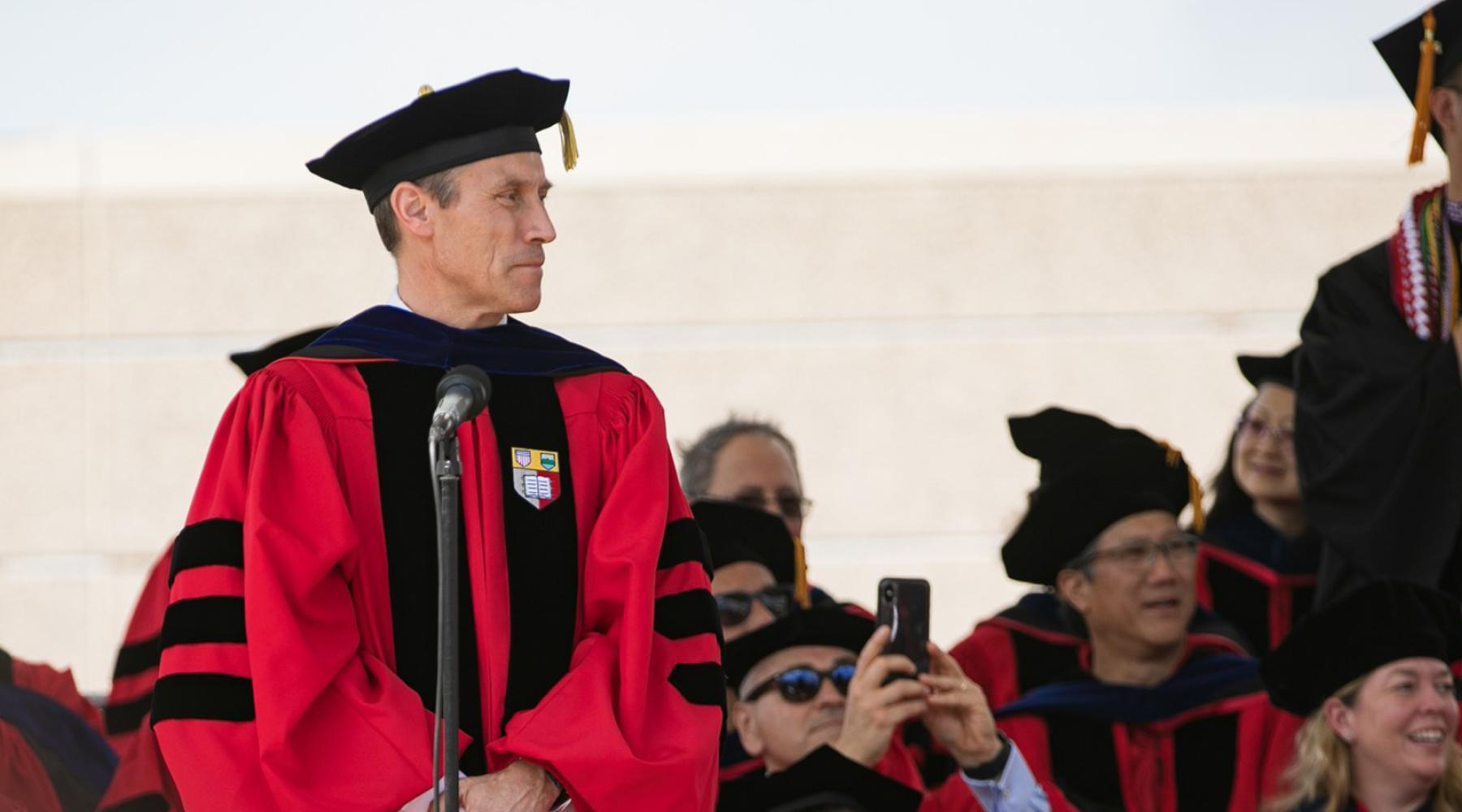
Dean Colvin Looks to the Future
Growing up in Saskatoon, Saskatchewan, Alex Colvin dreamed of being an astronomer. He went so far as to obtain a degree in astronomy and astrophysics in 1989 from the University of Toronto. Somewhere along the way, he realized that it wasn’t his passion.
“After my undergrad, I did what every arts and sciences person does who doesn’t know what they want to do in life – I went to law school.” En route to obtaining his law degree in 1992, also from the University of Toronto, Colvin took a class on labor and employment law, and that set him on a new course.
“I thought that class was really interesting,” Colvin says. “I decided that what I really cared about was not just the process and the procedure, but really the labor issues. I wanted to go study that and become a social scientist looking at data and really analyzing these problems.”
As the great-grandson of a labor leader who fought for workers’ rights in England during the 1920s and 1930s, it seems only fitting that Colvin would return to the University of Toronto one last time to obtain a master’s in industrial relations in 1995, before earning a fourth degree – a Ph.D. in industrial and labor relations – from Cornell in 1999.
Minus a stint as a faculty member at Pennsylvania State University in the Department of Labor Studies and Industrial Relations from 1999-2008, Colvin has spent the majority of his professional career on East Hill.
He returned to ILR as a faulty member in 2008, and was named the Martin F. Scheinman Professor of Conflict Resolution in 2014 and associate dean for academic affairs, diversity and faculty development in 2016. Colvin then took over as ILR’s interim dean in October following the departure of Kevin Hallock, who was named dean of the Cornell SC Johnson College of Business. Over the years, Colvin has co-chaired ILR’s strategic planning process, served as a member of the Cornell Provost’s Task Force to Enhance Faculty Diversity and continues to serve as an associate faculty member of Cornell Law School. On Thursday, the university announced that he was name dean.
A former varsity-level fencer in Canada – and recreational fencer to this day – Colvin is the faculty adviser for the Big Red women’s varsity fencing team and the Cornell’s men’s fencing team, as well as the Cornell recreational fencing club.
In addition to his administrative and teaching work, Colvin has published widely in academic journals and has also co-written or co-edited four books, including the textbook “An Introduction to U.S. Collective Bargaining and Labor Relations.” His research on mandatory arbitration is widely considered to be the most significant work of its kind. In 2018, Colvin was cited in Justice Ruth Bader Ginsburg’s dissenting opinion on a U.S. Supreme Court case that decided the rights of workers to participate in class-action suits. This spring, his research was cited again by the court.
As the new dean of ILR, Colvin is setting his sights on implementing his plan for ILR to be “future-oriented.”
“We need to be the place that is the intellectual center of thinking about the future of work,” he said. “As the world’s greatest academic institution studying work, labor and employment, we need to be at the forefront of debates about the future of work. That’s a broad vision.”
To obtain that vision, Colvin has identified a three-step path forward for ILR that begins with academic excellence. “We’re at Cornell. That needs to be our first priority. We need to be aggressively hiring faculty … And, we need to develop the new faculty to become the next generation of academic leadership of the school. It’s going to be one of my core goals to make sure that new generation is coming through and building the really strong school that I want us to have going forward.”
With excellent faculty in house, the next step will be to produce excellent research, in line with the school’s land grant mission, as well as excellence in teaching.
Finally, Colvin envisions a structural change to ILR Extension, which encompasses many of the school units focused on public outreach.
“I want us to present to the university that we have a set of institutes that together, collectively, are really strong,” he said. “They bring a lot of grants. They do a lot of activity. They do research. They do extension. Collectively, we call them the Division of Extension ... Essentially, it’s a Center for Work. This is the center for thinking about, and applying, activities related to work. I think that umbrella makes ILR stronger and communicates to the world what we’re doing … We want to build on what we have.”


